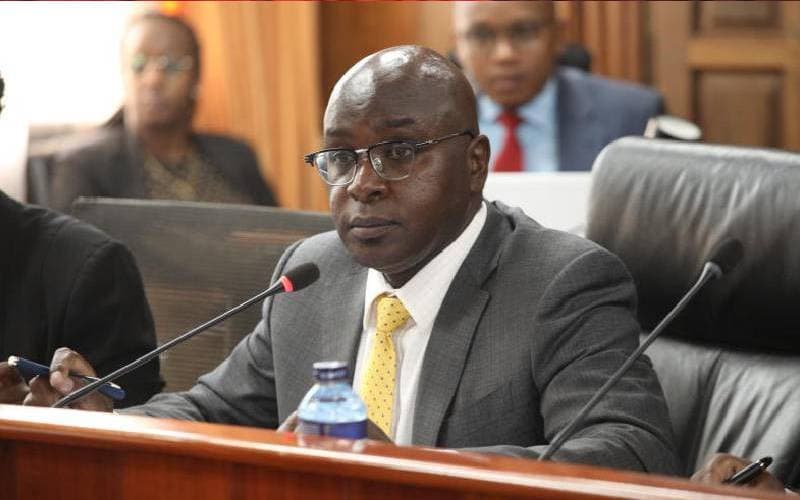We're loading the full news article for you. This includes the article content, images, author information, and related articles.
The High Court has struck down the Kenya Revenue Authority's crucial excisable goods tracking system, citing a flawed and unconstitutional procurement process. The ruling jeopardises a system credited with securing billions in state revenue.

The Kenya Revenue Authority’s primary tool for tracking billions of shillings in excise tax has been declared unconstitutional, a High Court ruling that throws the collection of revenue from goods like alcohol, cigarettes, and bottled water into uncertainty. The decision nullifies the entire procurement process for the multi-billion-shilling Excisable Goods Management System (EGMS).
This ruling directly impacts one of the taxman's most significant revenue streams, endangering the flow of funds essential for public services. The EGMS has been instrumental in securing over KES 400 billion since the 2016/17 financial year, and its suspension raises immediate questions about how the government will plug the potential shortfall and combat illicit trade.
In a detailed judgment delivered on Thursday, November 27, 2025, Justice Bahati Mwamuye stated that the tender process awarded to Swiss firm SICPA Security Solutions SA was fundamentally flawed. The court found the procurement to be opaque, irrational, and in violation of the constitutional principles of transparency and fairness demanded in public procurement.
"The manner in which this procurement was handled does not meet constitutional standards and cannot be upheld," Justice Mwamuye ruled, emphasizing that the State's actions were legally indefensible. The judgment noted glaring gaps in how the supplier was chosen and how the contract was operationalised, painting a picture of a process riddled with procedural defects.
The EGMS was designed to fight tax evasion and counterfeiting by affixing secure excise stamps on goods, allowing them to be tracked from production to sale. Its invalidation creates a significant challenge for the KRA, which relies on the system to meet its revenue targets. The potential consequences for the average Kenyan include:
The Kenya Association of Manufacturers (KAM) has previously expressed concerns about the operational costs passed on to producers and, ultimately, consumers. While an official statement on this ruling has not yet been issued, their historical position suggests they will be watching the next steps closely. Similarly, the Consumer Federation of Kenya (COFEK) has yet to comment on the immediate implications for consumer protection.
Mindful of the potential chaos, the court has granted a 30-day stay on the judgment. This grace period is intended to give the KRA and other state agencies time to manage the transition and decide on their next course of action, which could include appealing the decision or initiating a new, compliant procurement process.
The KRA has not yet issued a formal response to the ruling. However, this decision marks another chapter in the long-running legal battles over the lucrative EGMS contract, which has faced scrutiny and legal challenges from activists over the years regarding its cost and procurement integrity. The path forward remains unclear, but the pressure is now squarely on the tax authority to secure this vital revenue stream without delay.
Keep the conversation in one place—threads here stay linked to the story and in the forums.
Sign in to start a discussion
Start a conversation about this story and keep it linked here.
Other hot threads
E-sports and Gaming Community in Kenya
Active 9 months ago
The Role of Technology in Modern Agriculture (AgriTech)
Active 9 months ago
Popular Recreational Activities Across Counties
Active 9 months ago
Investing in Youth Sports Development Programs
Active 9 months ago